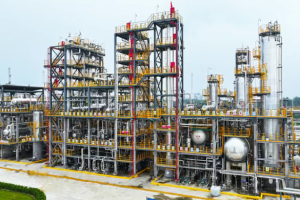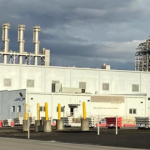June 4, 2025 – A seismic shift in U.S. energy policy has sent shockwaves through industries, after the Department of Energy abruptly canceled $3.7 billion in clean energy subsidies in late May. The move directly impacts 24 approved projects, including Eastman Chemical’s $1.2 billion waste plastic chemical recycling plant in Texas, which loses $375 million in federal funding—the largest single loss among the affected initiatives.
The policy upheaval stems from the Trump administration’s sweeping review of fiscal decisions by its predecessor. In a statement, the DOE emphasized the move aims to “ensure public funds are directed toward projects of undeniable strategic value.” Industry sources, including Color Masterbatch Industry Network, highlight Eastman’s molecular recycling facility as the hardest hit, with its advanced pyrolysis technology—designed to transform plastic waste into high-value feedstocks and create 1,200 jobs—now facing significant headwinds.

Eastman responded that while challenges are real, the company remains committed to the technology’s viability. “Molecular recycling is pivotal to achieving a circular plastic economy,” a spokesperson stated. “This setback will not deter our mission.” The project’s technology, which converts end-of-life plastics into raw materials for new products, had been viewed as a breakthrough in reducing plastic pollution.
The ripple effects extend far beyond Eastman. Industrial giants like ExxonMobil and Kraft Heinz, alongside numerous green tech startups, are grappling with canceled subsidies across sectors including plastic recycling, low-carbon construction materials, and renewable energy. The total funding withdrawn exceeds billions of dollars, creating uncertainty in industries poised for sustainable growth.
Experts warn the policy volte-face introduces dangerous unpredictability to the U.S. green manufacturing sector. “This isn’t just about lost funds—it’s a blow to investor confidence in clean technology as a whole,” said the head of the U.S. Home Energy Efficiency Council. The shift stands out as particularly abrupt amid global momentum toward sustainability.
Notably, local stakeholders are rallying behind Eastman’s project. Texas officials have pledged to maintain tax incentives and other policy support, hoping to sustain the initiative. This divergence between federal and state positions underscores growing tensions over energy transition strategies.
The episode highlights the critical role of policy stability in driving industrial transformation. As the global circular plastics economy accelerates, the U.S. reversal could weaken its competitiveness in a rapidly evolving sector. How Eastman and other impacted firms navigate this landscape will be a key storyline in the months ahead.














